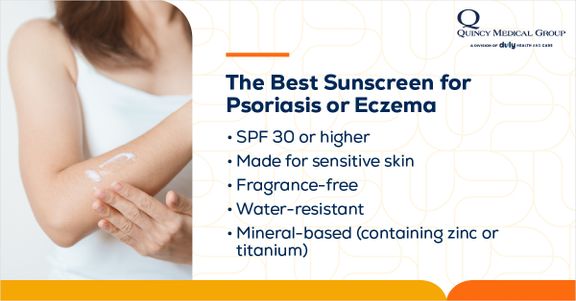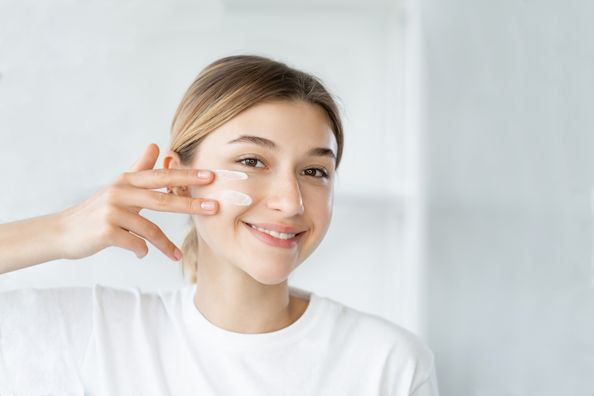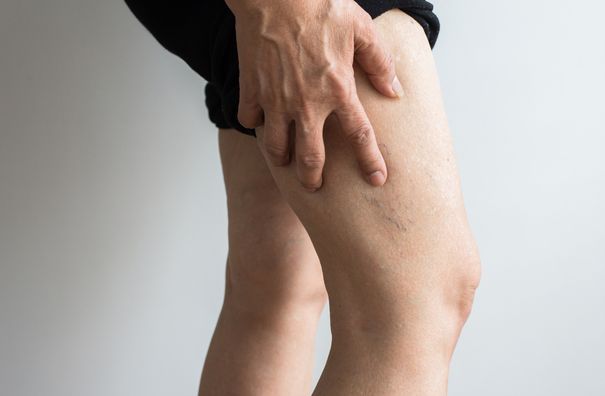Symptoms of psoriasis and eczema often get worse during warmer weather. Here’s why, and how you can prevent a flare-up.
Days lounging by the pool, trips to the beach, baseball games, backyard BBQs…some of the most classic summer activities revolve around being outdoors. Hours in the sun followed by a cool blast of air conditioning may sound heavenly to some people. But if you have psoriasis or eczema, it might not sound as appealing.
Psoriasis and eczema symptoms can flare up when you’re exposed to triggers. Triggers vary from person to person and may include anything from allergies to illness to exposure to certain fabrics.
People with psoriasis or eczema often find that their symptoms get worse at different points in the year, depending on the season. For some, warm weather offers a welcome relief. But for many others, their symptoms get worse during the summer months.
The good news is that, even if you’re prone to flare-ups when temperatures climb, there are plenty of ways to help prevent symptoms so that you can still enjoy the summer.
Here are five ways to manage psoriasis and eczema symptoms that act up during the summer.
1. Don’t Forget Your Sunscreen.
Sunlight can be a catch-22 for people with eczema and psoriasis.
The sun emits rays of ultraviolet light (UV rays). These rays are known to improve symptoms of both psoriasis and eczema. In fact, both conditions are sometimes treated with therapy that uses artificial versions of UV rays. However, overexposure to UV light can also be dangerous. In the long term, it can increase your risk for skin cancer. In the short term, it can cause sunburns and may make psoriasis and eczema symptoms worse.
The solution? Lather up. Sunscreen is important for everyone, but it’s especially important if sunlight affects your psoriasis or eczema. Sunscreen filters out a lot of sunlight, which protects you from overexposure and may prevent sun-induced symptoms. At the same time, it doesn’t completely block the rays, so you can still get some of the benefits of sunlight.
Since certain ingredients in sunscreen can cause flare-ups, make sure to go with psoriasis- and eczema-friendly options.

If you have psoriasis, do not put sunscreen directly on open or actively inflamed skin.
Read on Duly Health and Care: Sunscreen 101: How to Choose the Right Sunscreen for Your Skin
2. Switch Up Where You Swim.
Summer may as well be synonymous with swimming. People with psoriasis or eczema are often able to swim without problems and may even find that the water improves symptoms.
If you’ve tried going for a dip in the pool or a swim in the ocean and had a bad reaction, you don’t necessarily need to give up on swimming. In some cases, your reaction might come down to whether you’re swimming in saltwater or chlorinated water.
Saltwater can help remove dead skin and improve the appearance of psoriasis. It’s also known to soothe symptoms of eczema. Chlorinated water can be beneficial for eczema, and some people even take bleach baths as a form of treatment.
However, remember that both types of water can potentially dry out or irritate your skin. Rinse off with fresh water and moisturize after going for a swim to keep dryness at bay. And to avoid itching and flaring later in the day, change into dry clothes as soon as you’re done.
3. Break a Sweat, But Don’t Get Too Wet.
Between hot weather and being more active, it’s hard not to sweat during the summer. Perspiring does have some benefits. It’s your body’s natural way of cooling off and regulating body temperature, which is key for managing psoriasis and eczema. However, sweat can be an irritant. As it dries, it can leave a salty residue that causes itching.
Some ways to reduce sweat include:
- Wearing breathable, 100% cotton clothing
- Rinsing off after sweating
- Changing clothes if you sweat through them
- Using a fan or air conditioner when you’re inside (but be sure to moisturize, since AC can dry your skin)
Read on Duly Health and Care: Exercising in the Heat – Tips & Tricks
4. Keep an Eye on Summer Allergens.
Warm weather means allergy season for those allergic to pollen, mold, or insect bites. Allergy symptoms can be frustrating enough on their own, and they can be even more bothersome if you have psoriasis or eczema. It’s common to have flare-ups when you’re exposed to allergens.
If you are allergic to pollen, check the pollen forecast to see if it may be a good day to stay indoors. For a mold allergy, add a high-efficiency particulate air (HEPA) filter attachment to your air conditioner, clean out your gutters after rainstorms, and get rid of dampness in your home (like pipe leaks).
If you have bad reactions to bug bites, use insect repellent that does not contain DEET (a chemical in many repellents). DEET is a powerful force against bugs, but it can irritate your skin.
5. Remember to Take Care of Your Mental Health.
Many people find that their mood improves in the summer, but others find that their mood gets worse. This can be especially true if you’re socially isolating yourself or not getting any natural light because you’re staying in to avoid the heat. If you happen to dislike heat, very hot temperatures alone may be enough to put you in a sour mood.
Taking care of your mental health is important for many reasons, and it can be even more critical if you have a skin condition. Stress is a very common trigger for psoriasis and eczema flare-ups. Pay extra close attention to your mood and stress levels, since managing stress can actually reduce flares.
Relaxation techniques, exercise, and mindfulness activities (like yoga or meditation) are great ways to reduce stress and improve mental health. If stress becomes overwhelming or you’re having trouble managing it, don’t hesitate to talk to a mental health professional.
Need help managing psoriasis or eczema? Schedule an appointment with Quincy Medical Group dermatologist.
Health Topics:





